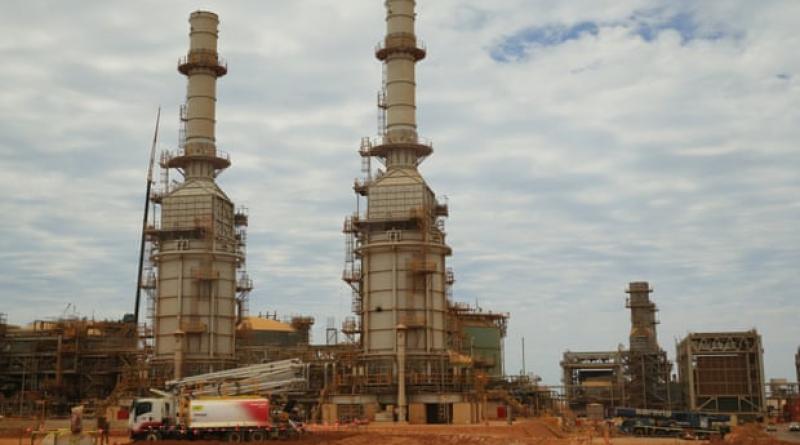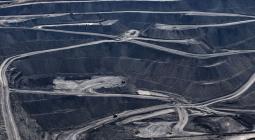Fossil fuel industry applauds Coalition climate measures that support carbon capture and storage.

Environmentalists say the Morrison government is directing emissions reduction funding to polluting companies.
Fossil fuel industry groups and companies have applauded new climate change measures proposed by the Morrison government, including support for carbon capture and storage developments.
The government has agreed to 21 of 26 recommendations made by an expert panel review headed by the former gas industry executive and business council president Grant King, who was asked to come up with new ways to reduce greenhouse gas emissions at low cost.
Recommendations included paying big industrial companies to keep their emissions below an agreed limit, and allowing the government’s main climate policy, the $2.5bn emissions reduction fund, to support carbon capture and storage (CCS) projects.
Angus Taylor, the energy and emissions reduction minister, said the government agreed in-principle that two publicly owned clean energy agencies, the Australian Renewable Energy Agency and the Clean Energy Finance Corporation, would be given a “technology neutral remit” – a proposal that has been interpreted as allowing more funding for projects that do not involve renewable energy.
The government’s response was welcomed by the gas and coal sectors, received qualified support from industry groups and was criticised by environmentalists, who said it directed emissions reduction funding to polluting companies and did not address Australia’s lack of an overarching climate policy.
CCS, which involves capturing industrial carbon dioxide as it is released and injecting it underground, has been a contentious area of public policy in Australia, having been promised billions of dollars in public funding for little result. The first significant project in Australia, Chevron’s Gorgon liquefied natural gas development in the Pilbara, started operating last year after years of delay.
Supporters say CCS can play a role in cutting emissions at industrial sites, if not power plants, and both the International Energy Agency and Intergovernmental Panel on Climate Change have acknowledged it has a role to play. Opponents say it has failed to deliver on scale over two decades and takes funding away from cheaper clean technology.
The plan to include CCS in the emissions reduction fund follows oil and gas giant Santos saying access to carbon credits or a similar revenue stream would be critical if it was to invest in a joint CCS project with BHP in South Australia. The Moomba CCS project, in SA’s remote north-east, is promised to capture 1.7m tonnes of carbon dioxide a year released during gas processing.
Santos’s chief executive, Kevin Gallagher, applauded the government for supporting “sensible, job creating recommendations that will cut through red and green tape” to accelerate investment in “real” emissions reduction opportunities.
“Just as private investment in renewable energy deployment was accelerated through public policy and funding over the last two decades, we now need to focus on accelerating CCS in similar ways,” Gallagher said.
Andrew McConville, the head of the Australian Petroleum Production and Exploration Association, representing oil and gas companies, said the review had proposed sensible steps on climate change. “Importantly, the report underlines the key role the oil and gas industry can play in cutting emissions,” he said.
Tania Constable, the head of the Minerals Council of Australia, said it provided “a clear path” for cutting emissions while keeping the country’s “core industries” including mining and minerals processing competitive. Coal21, an organisation created to research low-emissions technology that used funding for pro-coal advertising, said the support for CCS was a “win for the environment and industry”.
The King review’s recommendations include changing the “safeguard mechanism” – a policy that was promised to stop industrial emissions rising but that in practice has led to a significant increase – so that companies that emitted below a baseline would receive carbon credits they could sell. Speaking on ABC radio on Tuesday, Taylor said the proposal was not a form of voluntary carbon trading, then said that trading already happened and was “nothing new”.
Richie Merzian, from thinktank the Australia Institute, said the changes backed by the government would increase fossil fuel industries’ access to a limited pool of funding for climate action, and criticised the lack of process behind the review.
He said King’s four-person expert panel was commissioned in October without public visibility, run without public consultation, and its report was held back by the government until it was ready to also release its response.
“Australians have a right to be frustrated by this, not just because of the support for fossil fuels, but by the appalling process,” Merzian said. “We should wake up to the fact that this is happening at a much larger scale with the National Covid-19 Coordination Commission, which will involve the investment of hundreds of millions of taxpayers’ dollars.”
Suzanne Harter, a campaigner with the Australian Conservation Foundation, said the emissions reduction fund was ineffective and the King review recommendations would make it weaker. “Australia has virtually no effective climate policy and no pathway to achieve net zero emissions by 2050,” she said.
The Australian Industry Group said the review included several useful steps to help reduce emissions, but would need to be backed by significant funding and a strategy to reach net zero emissions by 2050.
The Intergovernmental Panel on Climate Change found global emissions need to fall 45% below 2010 levels by 2030 and reach net zero by about 2050 to give the world a chance of limiting global heating to 1.5C.
Taylor said it was not the government’s policy to reach net zero emissions by 2050. He said the Coalition was committed to cutting emissions without imposing new costs on households. He has said the recommendations aligned with a soon-to-be-released “technology investment roadmap”, and would position Australia to beat the 2030 target it set at the Paris climate agreement.
Analyses have previously found the government is not on track to meet the 2030 target, a 26-28% cut below 2005 levels, without using a carbon accounting loophole.
Labor’s climate change and energy spokesman, Mark Butler, said the opposition would take time to consider its response but criticised the Coalition’s policy for failing to cut emissions since 2014.
Adam Bandt, the Greens leader, accused the government of engaging in “greenwashing”. “Minister Taylor’s huffing and puffing about CCS is the same failed fossil fuel industry pipe dream they have been promoting for years,” he said.
19 May 2020
The Guardian




